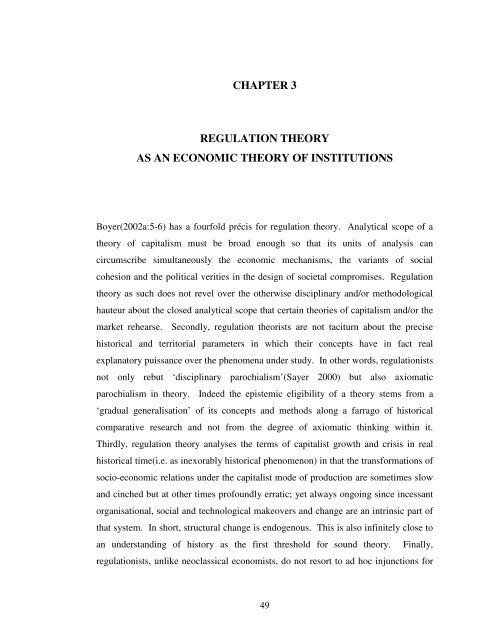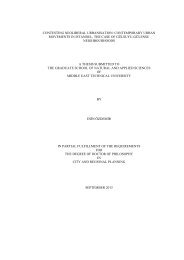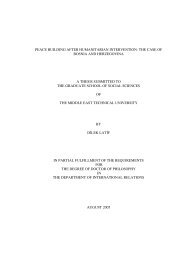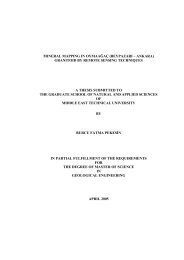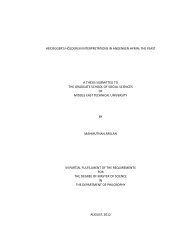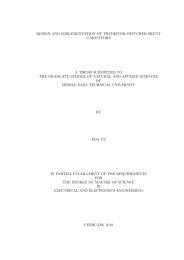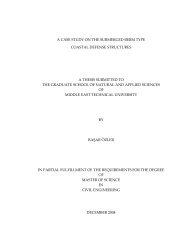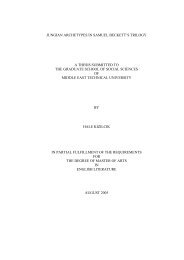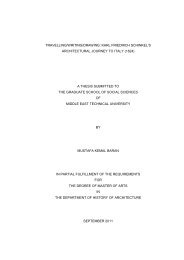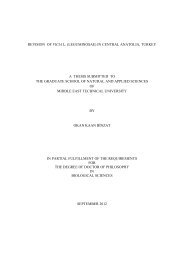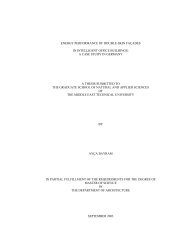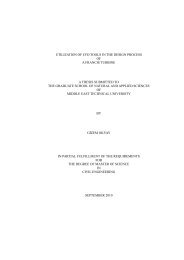View Original - Middle East Technical University
View Original - Middle East Technical University
View Original - Middle East Technical University
You also want an ePaper? Increase the reach of your titles
YUMPU automatically turns print PDFs into web optimized ePapers that Google loves.
CHAPTER 3<br />
REGULATION THEORY<br />
AS AN ECONOMIC THEORY OF INSTITUTIONS<br />
Boyer(2002a:5-6) has a fourfold précis for regulation theory. Analytical scope of a<br />
theory of capitalism must be broad enough so that its units of analysis can<br />
circumscribe simultaneously the economic mechanisms, the variants of social<br />
cohesion and the political verities in the design of societal compromises. Regulation<br />
theory as such does not revel over the otherwise disciplinary and/or methodological<br />
hauteur about the closed analytical scope that certain theories of capitalism and/or the<br />
market rehearse. Secondly, regulation theorists are not taciturn about the precise<br />
historical and territorial parameters in which their concepts have in fact real<br />
explanatory puissance over the phenomena under study. In other words, regulationists<br />
not only rebut ‘disciplinary parochialism’(Sayer 2000) but also axiomatic<br />
parochialism in theory. Indeed the epistemic eligibility of a theory stems from a<br />
‘gradual generalisation’ of its concepts and methods along a farrago of historical<br />
comparative research and not from the degree of axiomatic thinking within it.<br />
Thirdly, regulation theory analyses the terms of capitalist growth and crisis in real<br />
historical time(i.e. as inexorably historical phenomenon) in that the transformations of<br />
socio-economic relations under the capitalist mode of production are sometimes slow<br />
and cinched but at other times profoundly erratic; yet always ongoing since incessant<br />
organisational, social and technological makeovers and change are an intrinsic part of<br />
that system. In short, structural change is endogenous. This is also infinitely close to<br />
an understanding of history as the first threshold for sound theory. Finally,<br />
regulationists, unlike neoclassical economists, do not resort to ad hoc injunctions for<br />
49


